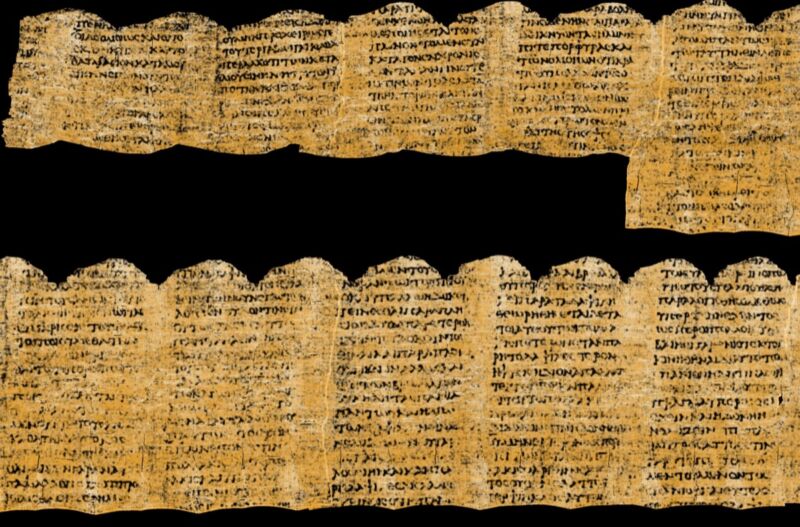
Enlarge / Text from one of the Herculaneum scrolls has been deciphered. Roughly 95 percent of the scroll remains to be read. (credit: Vesuvius Challenge)
Last fall we reported on the use of machine learning to decipher the first letters from a previously unreadable ancient scroll found in an ancient Roman villa at Herculaneum—part of the 2023 Vesuvius Challenge. Tech entrepreneur and challenge co-founder Nat Friedman has now announced via X (formerly Twitter) that they have awarded the grand prize of $700,000 for producing the first readable text. Three winning team members are Luke Farritor, Yousef Nader, and Julian Schilliger.
As previously reported, the ancient Roman resort town Pompeii wasn't the only city destroyed in the catastrophic 79 AD eruption of Mount Vesuvius. Several other cities in the area, including the wealthy enclave of Herculaneum, were fried by clouds of hot gas called pyroclastic pulses and flows. But still, some remnants of Roman wealth survived. One palatial residence in Herculaneum—believed to have once belonged to a man named Piso—contained hundreds of priceless written scrolls made from papyrus, singed into carbon by volcanic gas.
The scrolls stayed buried under volcanic mud until they were excavated in the 1700s from a single room that archaeologists believe held the personal working library of an Epicurean philosopher named Philodemus. There may be even more scrolls still buried on the as-yet-unexcavated lower floors of the villa. The few opened fragments helped scholars identify a variety of Greek philosophical texts, including On Nature by Epicurus and several by Philodemus himself, as well as a handful of Latin works. But the more than 600 rolled-up scrolls were so fragile that it was long believed they would never be readable since even touching them could cause them to crumble.